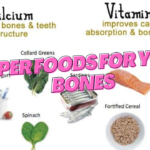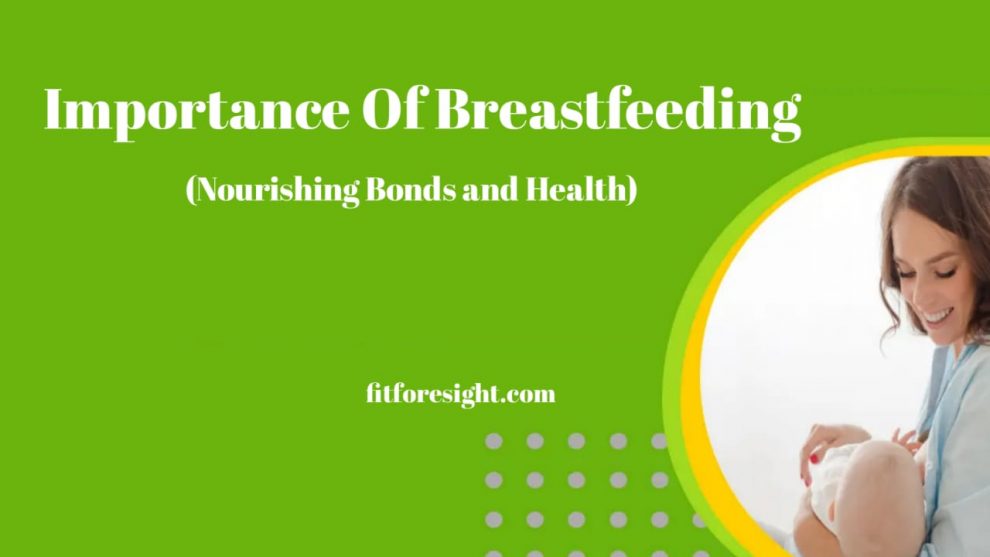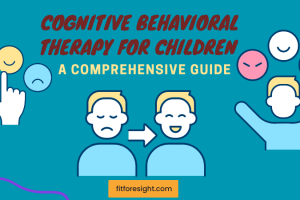Breastfeeding is a natural and profound act that has been fundamental to the health and well-being of infants and mothers for centuries. Beyond being a source of nourishment, breastfeeding creates a unique bond between a mother and her child, while also offering a multitude of health benefits. In this article, we’ll explore the numerous advantages of breastfeeding and the significance it holds for both babies and mothers.
The Benefits of Breastfeeding
- Optimal Infant Nutrition: Breast milk is nature’s perfect food for infants. It contains a balanced mix of nutrients, antibodies, and enzymes, tailored to meet a baby’s specific nutritional needs. This dynamic composition evolves as the baby grows, adapting to provide the best possible nourishment.
- Enhanced Immunity: Breast milk is a rich source of antibodies and immune-boosting factors. These help protect infants from infections and illnesses, reducing the likelihood of ear infections, respiratory infections, gastrointestinal issues, and more.
- Cognitive Development: Studies have shown that breastfed infants tend to have better cognitive development and higher IQ scores later in life. The omega-3 fatty acids and other essential nutrients in breast milk play a crucial role in brain development.
- Digestive Health: Breast milk is gentle on an infant’s delicate digestive system, reducing the risk of colic and constipation. It is also easier to digest, making it less likely for babies to experience food allergies.
- Bonding: Breastfeeding fosters a strong emotional bond between a mother and her child. Skin-to-skin contact, eye contact, and the act of nurturing through breastfeeding all contribute to the development of a deep emotional connection.
- Weight Regulation: Breastfed babies have a natural ability to regulate their own milk intake, which helps prevent overfeeding and contributes to healthy weight gain.
- Reduced Risk of Chronic Diseases: Breastfeeding has been associated with a lower risk of chronic diseases in both infants and mothers. Babies who are breastfed are less likely to develop conditions like obesity, diabetes, and asthma, while mothers have a reduced risk of breast and ovarian cancer.
- Convenient and Economical: Breast milk is always available, at the right temperature, and doesn’t require preparation or sterilization. This makes breastfeeding convenient and cost-effective compared to formula feeding.
The Importance of Breastfeeding for Mothers
- Postpartum Recovery: Breastfeeding triggers the release of hormones like oxytocin, which helps the uterus contract, reducing postpartum bleeding and aiding in a quicker recovery.
- Weight Loss: Breastfeeding burns extra calories, which can assist in post-pregnancy weight loss for mothers.
- Maternal Bonding: The act of breastfeeding creates a strong emotional bond between mother and child, promoting maternal mental well-being.
- Natural Family Planning: Breastfeeding can serve as a natural form of contraception, known as the lactational amenorrhea method, which provides a degree of birth control during the early postpartum period.
Challenging Breastfeeding Myths
Despite the numerous benefits, breastfeeding can sometimes be challenging. Several myths persist, which may deter mothers from breastfeeding or lead to early weaning. It’s essential to debunk these myths and provide accurate information and support to mothers who choose to breastfeed.
Breastfeeding is a remarkable journey that offers innumerable benefits to both infants and mothers. It not only provides optimal nutrition but also fosters an irreplaceable bond. Recognizing the importance of breastfeeding and providing support to mothers can contribute to healthier, happier families and communities.
During World Breastfeeding Week and beyond, let us celebrate the beauty of breastfeeding, promote its advantages, and ensure that every mother has the information and support needed to make the best choice for her and her child’s health and well-being.

























Add Comment